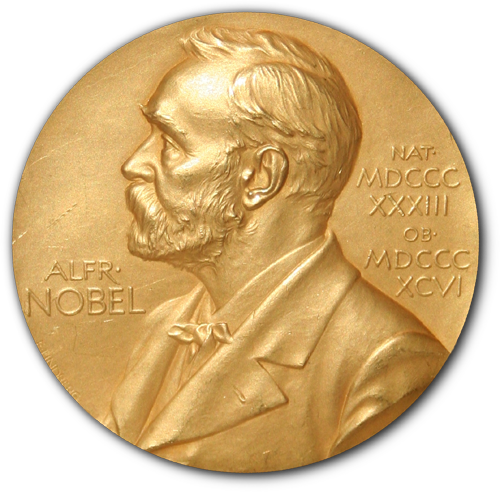The Nobel Prize Winner Who Bet Against Himself

Robert Lucas, Jr. graduated from the University of Chicago with a Ph.D. in Economics and returned to the school as a professor in 1975. Over his career, he developed a macroeconomic theory called “rational expectations,” which, according to the Chicago Tribune, “holds that people aren’t surprised when the government attempts to stimulate the economy, so they adapt their behaviors accordingly during such times and thus alter the expected results of government policies.” It was somewhat controversial at first, but ultimately, the world of macroecon experts adopted Lucas’s view. And on October 10, 1995, Lucas was awarded a Nobel Prize in Economics for his work.
The Nobel came with a $1,000,000 cash prize. But he only got half of it — because his ex-wife believed in him more than he believed in himself.
Lucas met his first wife, Rita Cohen, while both were undergraduate students at Chicago. They married in the summer of 1959 and had two children together in the 1960s. But in 1982, the couple separated — Lucas ended up living with, an ultimately marrying, a fellow economics professor at Chicago — and ultimately, Lucas and Cohen divorced. The divorce agreement was dated January 23, 1989, according to a separate Tribune story.
That is a long time to reach a divorce agreement, and one paragraph may be the reason why (and to be clear, I’m speculating about that). That paragraph — the sixth in the agreement — stated simply that “Wife shall receive 50 percent of any Nobel Prize,” according to the New York Times. The agreement was set to expire on October 31, 1995, but of course, October 10, 1995 is before that date. As a result, Rita Cohen received half — $500,000 — of her ex-husband’s Nobel Prize’s cash reward.
The bet that Cohen made was a reasonably strong one; per the Associated Press, as of 1995, “eight University of Chicago professors have won the Nobel in economics, and Lucas was the fifth in the last six years.” Lucas didn’t seem to mind. Ellen Warren, a Chicago Tribune columnist, spoke with shortly after news of his win — and of his ex-wife’s sharing of the windfall — hit the news:
Robert Lucas was pretty circumspect about the whole thing when I called him to see whether he wanted to rant and rave about the unfairness of it all. I guess laureates don’t rant.
“A deal is a deal,” he said. Though he added a little ruefully, “It was her idea. Maybe if I’d known I’d win, I would have resisted the clause.”
But in his post-Nobel glow, Lucas said, “It’s hard to be unpleasant after winning a prize like that.”
As for Cohen, she didn’t say much about the windfall — except to note that about 40% of it was going to the government to pay for the tax bill. As Warren joked, “It appears as if she developed some economic theories of her own during 29 years of marriage to a guy who knows a lot about money.” And about $300,000 net, too.
Bonus fact: By giving away (some of) his Nobel money, Lucas was actually in good company. In 1921, the winner of the Nobel Prize in Physics earned a cash award along with the honor, but he didn’t see a penny of it. Two years earlier, he and his wife, Mileva Marić (who herself was a physicist and mathematician) divorced, and per the terms of their agreement, any money that he received from a future Nobel would go to her. That man? Albert Einstein.
From the Archives: Dissolving Medals: How to hide a Nobel Prize (from the Nazis, not your ex-wife).
